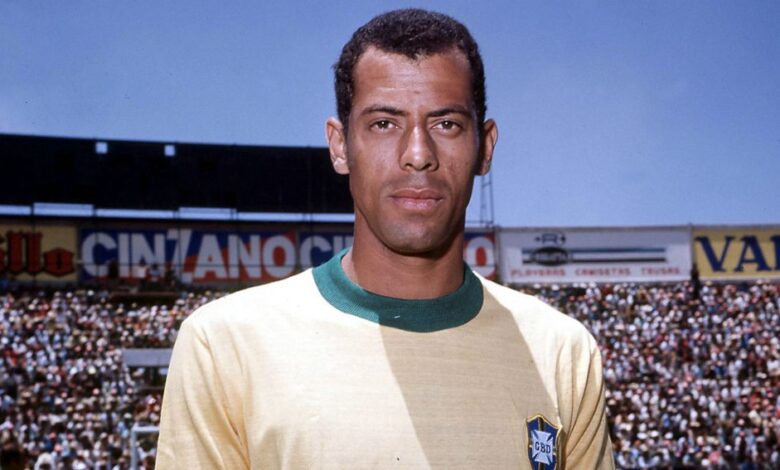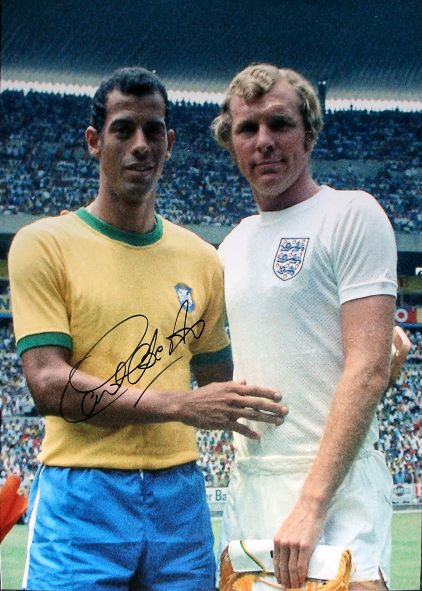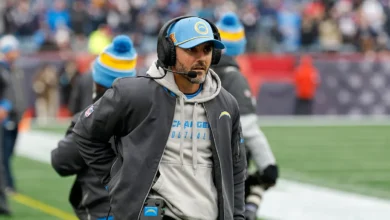
Introduction: Who Was Carlos Alberto?
In the world of football, a few names rise above statistics and trophies to become symbols of the sport’s very spirit. Carlos Alberto Torres, often simply referred to as Carlos Alberto, is one such name. Known for his elegance on the pitch, commanding leadership, and unforgettable presence as captain of Brazil’s 1970 FIFA World Cup-winning team, he remains an enduring icon in the history of the beautiful game.
Born on July 17, 1944, in Rio de Janeiro, Brazil, Carlos Alberto’s story is not just about football—it’s about how talent, discipline, and vision can elevate an athlete into a global legend. His career spanned two decades, during which he played for some of the most renowned clubs in Brazil and abroad, leaving a mark wherever he went. But perhaps his greatest moment came when he scored one of the most famous goals in World Cup history during the final against Italy in 1970.
His name is etched not only in record books but also in the memories of football lovers across generations. Carlos Alberto was more than a right-back; he was a football philosopher on the field, someone who blended technical skill with tactical brilliance.
Early Life and Rise to Stardom

Carlos Alberto grew up in a football-loving neighborhood in Rio de Janeiro, where the sport was not just a pastime but a way of life. Like many Brazilian kids, he spent hours playing barefoot on makeshift pitches, honing his control, speed, and passing. His natural ability was clear from a young age, and by his teenage years, scouts were already noticing his potential.
He began his professional career with Fluminense in the early 1960s, a club that gave him the platform to display his exceptional talent. At Fluminense, his defensive awareness and ability to surge forward with the ball stood out. Even as a defender, Carlos Alberto had the instincts of a playmaker, something rare at the time.
His performances quickly caught the attention of bigger clubs, and soon he found himself signing for Santos FC, the legendary Brazilian club home to Pelé. This move would prove to be a turning point in his career, as it was here that he would refine his skills and develop into one of the finest defenders the game had ever seen.
The Santos Years: Playing Alongside Pelé
Joining Santos FC in 1965 was like stepping into football royalty. The team was already world-famous, largely because of Pelé’s incredible feats, but it also had an ensemble of talented players who made the club unstoppable during that era.
Carlos Alberto quickly integrated into the squad, bringing not just defensive solidity but also attacking support down the right flank. His overlapping runs, accurate crosses, and composure under pressure became trademarks of his style. While Pelé dazzled crowds with his magical dribbles and goals, Carlos Alberto ensured the team had the defensive balance and leadership needed to dominate both domestically and internationally.
During his time with Santos, he won several state championships and international titles, cementing his status as one of the club’s key players. More importantly, it was here that he developed the chemistry with Pelé and other national teammates that would later define Brazil’s legendary 1970 World Cup campaign.
Captain of Brazil: The 1970 FIFA World Cup
The 1970 FIFA World Cup in Mexico is often regarded as the greatest in football history, and Carlos Alberto was right at the heart of it. As captain of the Brazilian national team, he led a squad bursting with talent—Pelé, Jairzinho, Tostão, Gérson, and Rivellino, to name a few.
Brazil’s style of play in 1970 was revolutionary. It combined technical mastery, fluid teamwork, and attacking flair in a way the world had never seen before. As captain, Carlos Alberto’s role was to keep the team organized and motivated, ensuring that the attacking freedom did not come at the expense of discipline.
The tournament’s defining moment came in the final against Italy. With Brazil leading 3–1, the team constructed what is widely considered the greatest goal in World Cup history. The move involved almost the entire team, ending with Pelé rolling the ball into the path of Carlos Alberto, who struck a powerful, precise shot into the corner of the net. That goal not only sealed Brazil’s 4–1 victory but also symbolized the beauty of Brazilian football.
Playing Style and Leadership Qualities
Carlos Alberto wasn’t just a right-back; he was a pioneer in redefining the role. Traditionally, defenders were expected to stay back, mark their man, and clear the ball. But Carlos Alberto brought a new dimension to the position—he was a defender who could attack, create plays, and score goals.
His vision allowed him to anticipate opponents’ moves, while his calmness under pressure gave his teammates confidence. He had an uncanny ability to read the game, switching from defense to attack in the blink of an eye. His leadership extended beyond tactical instructions; he inspired through example, working tirelessly and maintaining a winning mentality at all times.
It’s no surprise that teammates and coaches often described him as a “coach on the pitch.” His ability to balance discipline with freedom made him the perfect captain for a team as creative and flamboyant as Brazil’s 1970 squad.
Later Career and Move to the NASL
After his successes in Brazil, Carlos Alberto moved to the North American Soccer League (NASL) in the late 1970s. He joined the New York Cosmos, where he once again reunited with Pelé. This move helped promote football in the United States, where the sport was still growing in popularity.
With the Cosmos, Carlos Alberto continued to showcase his skills and leadership, winning NASL titles and captivating new fans. His presence in the league, alongside other international stars, was crucial in building a foundation for the growth of soccer in America.
Even in the later stages of his career, his passion for the game remained undiminished. He adapted his playing style to his age, relying more on positioning and intelligence than sheer athleticism, yet still managed to dominate games.
Life After Football: Coaching and Broadcasting
After retiring as a player in 1982, Carlos Alberto turned to coaching, managing clubs in Brazil and abroad. While his coaching career didn’t reach the same heights as his playing days, he remained a respected figure in the sport.
He later became a football commentator, offering insightful analysis and sharing stories from his legendary career. His deep understanding of the game and his charismatic personality made him a popular figure on Brazilian television.
Carlos Alberto’s post-playing career allowed him to stay connected to football, inspiring younger generations not only with his past achievements but also with his wisdom and love for the sport.
Legacy and Impact on the Game
Carlos Alberto’s influence extends far beyond the goals he scored or the matches he won. He helped redefine the role of a defender, showing that full-backs could be creative forces as well as defensive stalwarts. His leadership in Brazil’s 1970 team remains a gold standard for captains everywhere.
Generations of players have cited him as an inspiration, particularly in Brazil, where attacking full-backs have become a hallmark of the national style. His famous goal in the 1970 final is replayed endlessly, a timeless reminder of football’s artistry.
Sadly, Carlos Alberto passed away on October 25, 2016, at the age of 72, but his legend endures. He is remembered not just as a footballer, but as a symbol of elegance, sportsmanship, and passion for the game.
Final Thoughts: Remembering a True Football Icon
Carlos Alberto’s life and career are a testament to what football can be at its best—beautiful, inspiring, and unifying. From his early days in Rio to his captaincy of one of the greatest teams in history, he embodied everything fans love about the sport.
Even decades after his greatest triumph, his influence continues to be felt. Young defenders still study his positioning, his composure, and his ability to turn defense into attack. Coaches still speak of his leadership as an example to follow. Fans still watch his 1970 goal and feel the same thrill as if it happened yesterday.
In the end, Carlos Alberto was more than just a player; he was a leader, a trailblazer, and an artist with a football at his feet. His legacy will forever be a shining chapter in the story of the beautiful game.



